#Sabbath Tithings
Text
⏸️
🌺Breath Check🌺
Math check. Go! Fall 17 was the year.
Fall 17 to fall 18 = 1yr
Fall 18 to fall 19 = 2nd yr
Fall 19 to fall 20 = 3rd yr
Fall 20 to fall 21 = 4th yr
Fall 21 to fall 22 = 5th yr
Fall 22 to fall 23 = 6th yr
Fall 23 to fall 24 = 7th yr
Now… FDs
Winter but spring semester 18 = FD1
Winter but spring semester 19 = FD2
Winter but spring semester 20 = FD3
Winter but spring semester 21 = FD4
Winter but spring semester 22 = FD5
Winter but spring semester 23 = FD6
Winter but spring semester 24 = FD7
So, in conclusion, I am celebrating my 7th founders’ day. Thank you Trinity & my 22 😘.
There was a seasonal confusion and some serious witchcraft and curses I had to dig through to shine a light on for this clarity. As I type, the spirit left that part of my mind. Spiritual warfare. A very intricate one too. Whew. I can’t wait to see the rest of this journey
I’m on your rear year 7 in this land.
My husband will be with me too.
To the reservation! 🤓😘
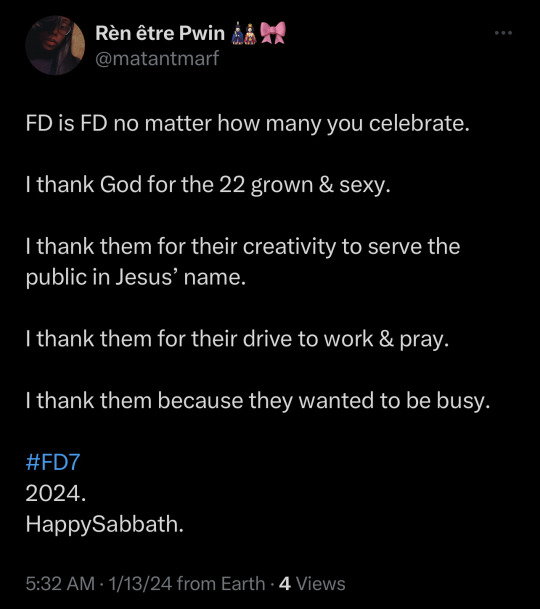
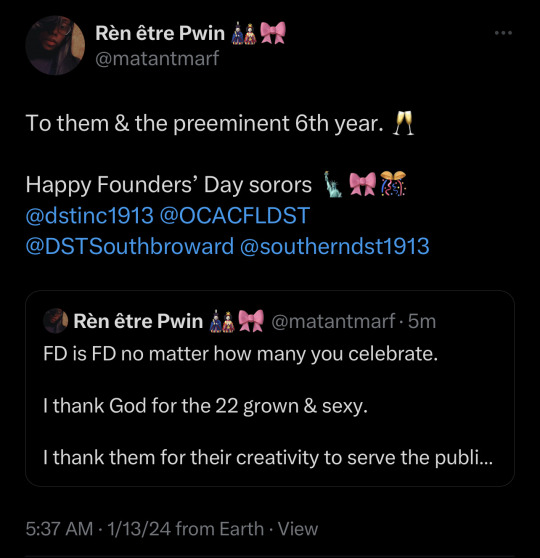
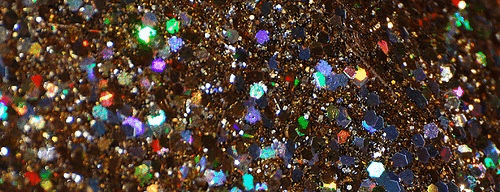
#active psalms#FD7#Public Service#c natural#harmonic alignment#checkerboard chemistry#full blast glitter#full flitter#glimmers of Jesus#Breath Check#hibiscus breath check#Sacre Saturday#Sabbath Tithings
4 notes
·
View notes
Text
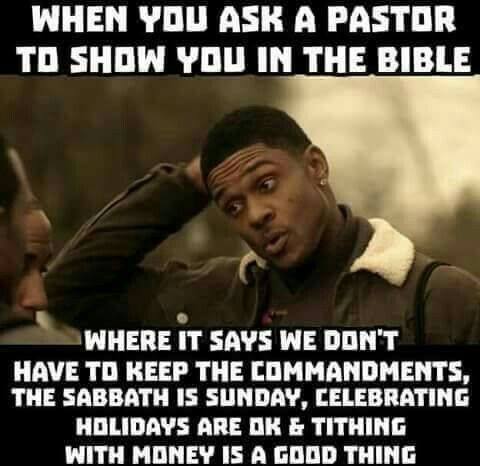
Do any of you Xians ever actually read this damn book? Cause none of y'all seem to know what it says.
#christianity#bible#bible study#god is man made#man made god#read the book#read the bible#religion#ten commandments#tithing#sabbath#remember the sabbath day#religion is a mental illness
52 notes
·
View notes
Photo

The Reforms of Nehemiah
1 On that day they read aloud from the Book of Moses in the hearing of the people. In it there was found written that no Ammonite or Moabite should ever enter the congregation of God, 2 because they did not meet the children of Israel with bread and water, but hired Balaam to curse them. However, our God turned the curse into a blessing. 3 When they heard the Law, they separated from Israel all the racially mixed.
4 Before this, Eliashib the priest, who had been appointed to govern the chambers of the house of our God, was related to Tobiah. 5 So, he had prepared a great chamber hall for him, where previously they had stored the contributions, the frankincense, the vessels, and the tithes of grain, new wine, and fresh oil, as required, for the Levites, the singers, the gatekeepers, and the contribution for the priests.
6 But during this time I was not in Jerusalem, since in the thirty-second year of King Artaxerxes of Babylon I had gone to the king. At the conclusion of those days I requested a leave of the king. 7 When I came to Jerusalem and understood the evil that Eliashib did for Tobiah by preparing him a chamber in the courts of the house of God, 8 I was very grieved. So, from the chamber I threw all of the household belongings of Tobiah outside. 9 Then I commanded, and they cleansed the chambers so that I could return there the vessels of the house of God, the contributions for the offerings, and the frankincense.
10 When I perceived that the supplies for the Levites had not been given and that the Levites and the singers doing the work had fled, everyone to his own field, 11 I confronted the officials and asked, “Why is the house of God forsaken?” So I gathered them and stationed them at their posts.
12 Then all Judah brought the tithe of the grain, the new wine, and the fresh oil to the storehouses. 13 Overseeing the replenishing of the storehouse, I appointed Shelemiah the priest, Zadok the scribe, and Pedaiah from the Levites, and to assist them Hanan the son of Zakkur, the son of Mattaniah, for they were considered reliable, and their task was to distribute to their relatives.
14 Remember me, O my God, concerning this. Do not blot out my good deeds that I have done for the house of my God and its workings.
15 In those days I saw in Judah some treading winepresses on the Sabbath or hauling loads of grain or loading donkeys with wine, grapes, figs, and all manner of burdens in order to bring them to Jerusalem on the Sabbath day. So, during the day while they were selling the food goods, I warned them. 16 Men of Tyre also stayed there, having hauled in fish and all kinds of merchandise, and sold them on the Sabbath to the people of Judah, and in Jerusalem. 17 Then I confronted the nobles of Judah and asked them, “What is this evil thing that you are doing, profaning the Sabbath day? 18 Did not your fathers do likewise? Did not our God bring all this evil against us and against this city? Will you yet bring more wrath upon Israel by profaning the Sabbath?”
19 As the gates of Jerusalem began to cast the evening shadow before the Sabbath, I commanded that the gates should be shut, and charged that they should not be opened until after the Sabbath. Some of my servants I stationed at the gates so that there would be no loads brought in on the Sabbath day. 20 Once or twice the merchants and sellers of all kind of merchandise lodged outside Jerusalem. 21 So I warned them and said to them, “Why do you spend the night next to the wall? If you do so again, I will send you away by force.” From that time on they stopped coming on the Sabbath. 22 Then I commanded the Levites to purify themselves so that they could come and, as guardians of the gates, sanctify the Sabbath day.
Remember me, O my God, concerning this also, and spare me according to Your abundant mercy.
23 Moreover, in those days I also saw Jews who had married the women of Ashdod, Ammon, and Moab. 24 Half of their children spoke in the language of Ashdod, yet none of them could recognize the language of the Jews. This was true language by language. 25 So I confronted them and cursed them. Some of the men I beat. Others, I plucked out their hair. Also, I made them swear an oath by God and said to them, “You shall neither give your daughters to their sons, nor marry their daughters to your sons or to yourselves. 26 Did not Solomon king of Israel sin by these things? Yet among many nations there was no king like him. He was loved by his God, who made him king over all Israel. Nevertheless, foreign women caused even him to sin. 27 Should we then listen to you, the ones doing all this great evil, who are behaving unfaithfully against our God by bedding foreign women?”
28 Also, one of the sons of Joiada, the son of Eliashib the high priest, was a son-in-law to Sanballat the Horonite, so I drove him away from me.
29 Remember them, O my God, because they have defiled the priesthood and the covenant of the priesthood and the Levites.
30 Thus I purified them from everything foreign and appointed work crews for the priests and the Levites, each to his task, 31 and I provided the wood offering, at the appointed times, and the first fruits.
Remember me, O my God, for good.
— Nehemiah 13 | Modern English Version (MEV)
The Holy Bible, Modern English Version. Copyright © 2014 by Military Bible Association. Published and distributed by Charisma House.
Cross References: Exodus 12:38; Exodus 20:8; Exodus 20:10; Exodus 34:11; Leviticus 27:30; Numbers 18:21; Numbers 25:13; Deuteronomy 12:19; Deuteronomy 23:3; Deuteronomy 25:2; 2 Samuel 12:24-25; 2 Kings 20:3; 1 Chronicles 3:24; 1 Chronicles 15:12; 2 Chronicles 29:5; Ezra 6:22; Ezra 9:13; Ezra 10:2; Nehemiah 2:10; Nehemiah 2:19; Nehemiah 3:1; Nehemiah 4:1; Nehemiah 7:2; Nehemiah 10:30; Nehemiah 10:34; Nehemiah 10:39; John 2:13; John 5:10; 2 Peter 2:15
#foreigners excluded#the temple cleansed#tithes restored#the Sabbath restored#marriage to pagans forbidden#Nehemiah 13#Book of Nehemiah#Old Testament#MEV#Modern English Version Bible#Charisma House#Military Bible Association
15 notes
·
View notes
Text
The Most Controversial Doctrines
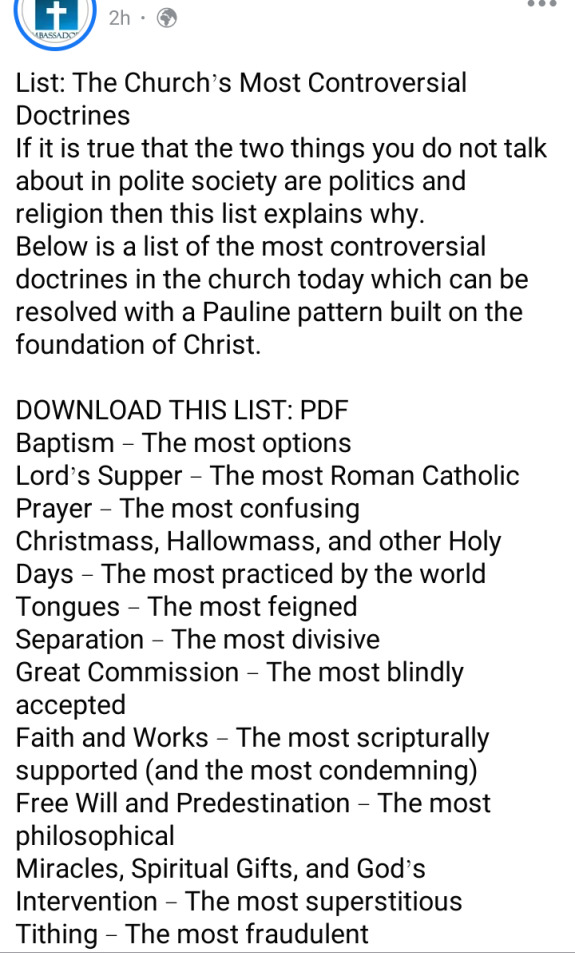
View On WordPress
#1 Corinthians 15:1-4#2 Corinthians 5:19#Controversial doctrines#Sabbath#The Church#Tithing#Water Baptism
0 notes
Text
Christians Under the Law of Christ
Christians Under the Law of Christ
God gives law to humans living in every age. He gave commands to the first humans living in the sinless environment of the Garden of Eden (Gen 1:26-30; 2:15-17). He gave commands to Noah (Gen 6-9). He gave commands to Abraham (Gen 12:1; 17:10-14). He gave commands to the Israelites—known as the Mosaic Law—after delivering them from their bondage in Egypt (Ex 20 – Deut 34). He has given commands…
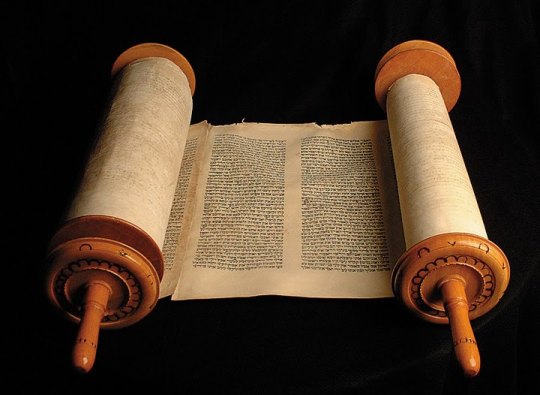
View On WordPress
#Are Christians under the Mosaic Law?#Christ is the end of the Mosaic Law#Christians and the New Covenant#Christians are not under the Mosaic Law#Christians are under a new law code#Christians Are Under the Law of Christ#Should Christians keep dietary laws#Should Christians keep the Mosaic Law?#Should Christians keep the Sabbath?#Should Christians tithe?#the dispensation of the church age#The end of the Law#the end of the Mosaic Law#The law of Christ#the law of liberty#the Law of Moses#The law of Moses and the Law of Christ#The Mosaic Law is no longer in operation#the Mosaic Law is no the rule of life for Christians#The Mosaic Law is obsolete#the New Covenant and the Mosaic Covenant#The royal law
0 notes
Text
Some things I’ve been thinking about. At times being an American trad witch is incredibly frustrating and at others it’s absolutely exhilarating, rewarding. Reconnecting with my ancestral ( primarily french and scottish ) lore, magical practices, witchcraft etc has and will continue to inform my practice but I’ll never be a “french” witch. I’ll never be a “scottish” witch. I can find a lone hawthorn or a sacred tree guarding a hidden spring to tie the cloutie to, I can divine via a snail’s mucus trail, Fly to the Sabbath to meet The Abbess, heed the Dame Blanches, pluck the golden bloom with songs to St Columba, safeguard me and mine via silver, spring water and juniper. Yet there’s many things I’ll never know or be able to do. Whether that’s because these things are so tied to the land or a specific place, language barriers, ( working to overcome this one ) or due to the ( well warranted) gate keeping of lore and practices.
This used to be a source of great confusion for me. I think because I was afraid( due to my previous new age fuckwittery ) to experiment, do anything other than what I understood as “traditional”. My understanding being too rigid at the time; the pendulum swung from one end of the spectrum to the other. This delayed my progress and “froze” me. I was left wondering what an “American” trad craft would look like; most our books do come from a European POV. Learning of our own magical traditions as well as those of my Canadian family ( still working on that one haha ) helped. Reading Robin Kimmere helped. Reading Schulke, him being an American and writing on American plants, helped too. I’ve come to know Sugar Maple and Plantain as powerful spirits. Both teaching important lessons on how to rectify my ancestors mistakes, to foster relations with the First Peoples and how to incorporate the magic of this land into my craft. Rather than being frustrated by my being American I see it as a challenge now. I get to explore spirits, plants, places, animals, spiritual/physical ecologies ( is even really a difference between these?) completely unknown to my ancestors. I get to reconcile the old and the new. To learn from Spirit Direct. Tradition isn’t the worship of ashes, it’s the preservation of Fire. New wood must be added to keep The Fire burning. The Devil of this land certainly is a spirit of the unknown.
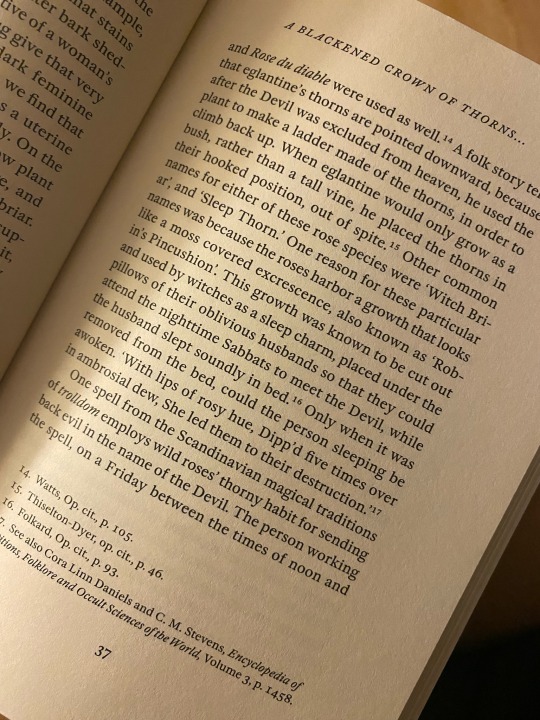
I am the land, the land is me.
I don’t own it, to it I owe all.
To it my body will return, the tithe paid.
I’m not rolling hills of heather, white chalk cliffs, the monk’s island nor the azure coast. The memories of these places echo distantly in my blood, sung alive by my ancestors shades. Part of me they’ll always be; yet it’s not who I am. Not what I am.
I’m craggy shores, dull-jade waves bearing down upon the tired rocks. I am musky pine forests veiled in mist. Sun-venerating oaks hugging the shoreline. Bleeding alders in damp ground swelling. Proud maples sustaining generation upon generation with their boiled blood. Death-grey clay, exposed by running spring.
I am the kudzu, the itching moth, the knotweed, the Norway maple, the ivy wrecking havoc upon the land. My surname and light skin proof of a genocide ongoing. I am my ancestors sins; the specter of the Old Growth forests, their grief hanging over the land like a fog. Every interaction with The Land tinged with sadness, loss.
I am my maternal side’s copper curls. Melusine’s pride. Ave Landry! Ave Gauthier! Forebears mine.
I am my paternal side’s grief. The end result of decades of cultural warfare. The Jesuits stole our name….my hair will not be cut.
Never will I libate these glacier carved valleys with booze.
I am the plantain, learning a kinder way. The sumac reclaiming the orchard.
My Februarys, my Marches aren’t snow drops and daffodils peaking through the frozen ground. They’re steely skies and walls of sleet. Bloodroot heralds winters wane; not Brigid’s flower.
My June isn’t fields of poppies, it’s seas of crimson staghorn blooms skyward reaching.
My augusts aren’t golden shafts of wheat, swaying in summer’s last breaths; they’re explosions of neon-violet and honey-yellow. Corn ripening on the vine, supporting the climbing bean. The cicadas song reverberating.
Old Michaelmas marks harvest’s end, October potatoes long buried in soils darkness finally exhumed. The Devil his Rosy Briar to ascend and plunge.
With Novembers first snows the Dead come in.
I’ll never process around a standing stone nor know what it is to live and eat off the land my dead lay in. Finally, I’m learning to be at peace with this. To love and know the land I live on. I’ll always be a stranger here, a guest. I hope to be a good one.
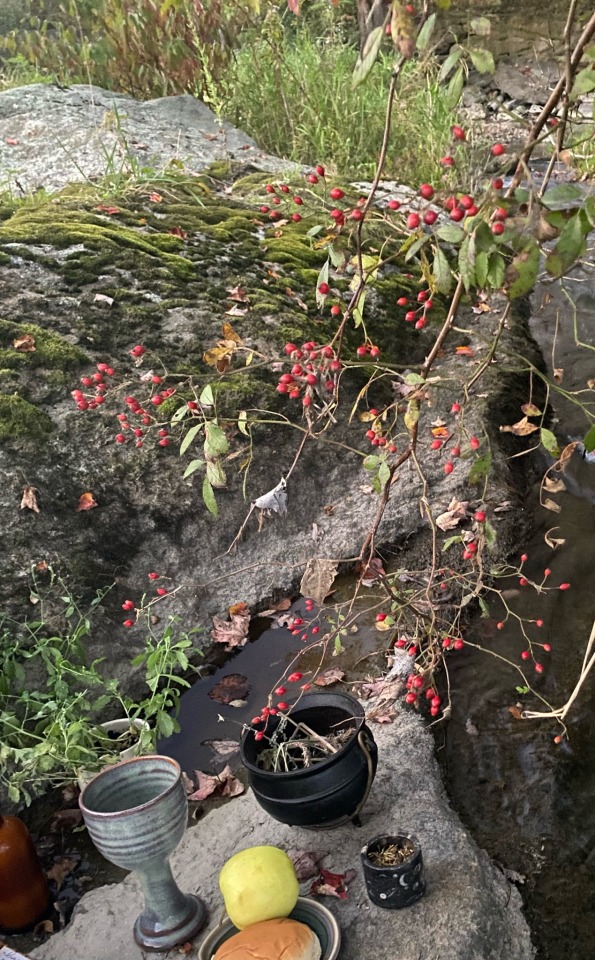
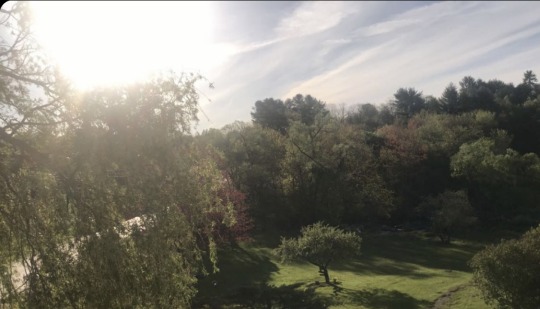

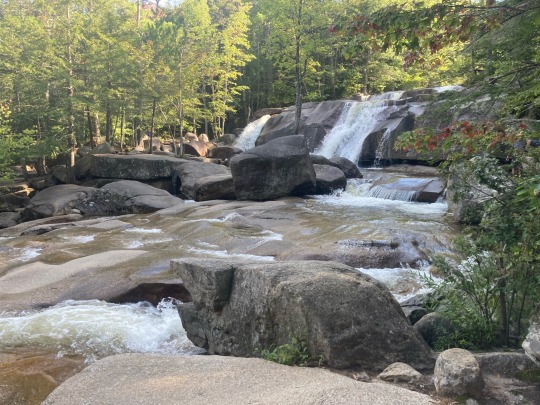
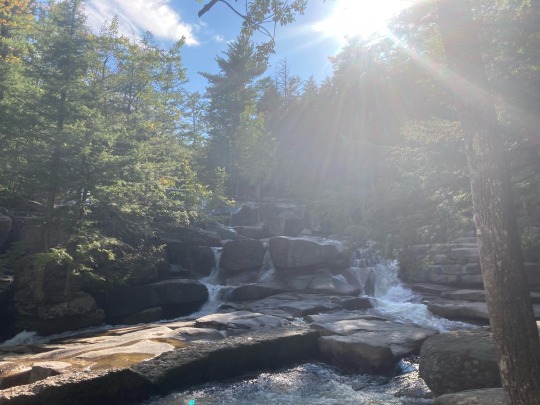
#folk magic#tradcraft#traditional witchcraft#witch#folklore#magic#magick#traditional craft#witchcraft#occult#animism#animist#animistic#animists#witches#indigenous#reparations#Michaelmas#native plants#invasive plants#ancesters#ancestry#ancestral veneration#American witch#American witchcraft#Daniel schulke#traditional American witchcraft#American traditional witchcraft#Corrine Boyer#poetry
93 notes
·
View notes
Text


All Abrahamic religions claim to be monotheistic, worshiping an exclusive God, although one who is known by different names. Each of these religions preaches that God creates, is one, rules, reveals, loves, judges, punishes, and forgives.
However, although Christianity does not profess to believe in three gods—but rather in three persons, or hypostases, united in one essence—the Trinitarian doctrine, a fundamental of faith for the vast majority of Christian denominations, conflicts with Jewish and Muslim concepts of monotheism.
Since the conception of a divine Trinity is not amenable to tawhid, the Islamic doctrine of monotheism, Islam regards Christianity as variously polytheistic.

Judaism and Islam have strict dietary laws, with permitted food known as kosher in Judaism, and halal in Islam. These two religions prohibit the consumption of pork; Islam prohibits the consumption of alcoholic beverages of any kind. Halal restrictions can be seen as a modification of the kashrut dietary laws, so many kosher foods are considered halal; especially in the case of meat, which Islam prescribes must be slaughtered in the name of God. Hence, in many places, Muslims used to consume kosher food. However, some foods not considered kosher are considered halal in Islam.
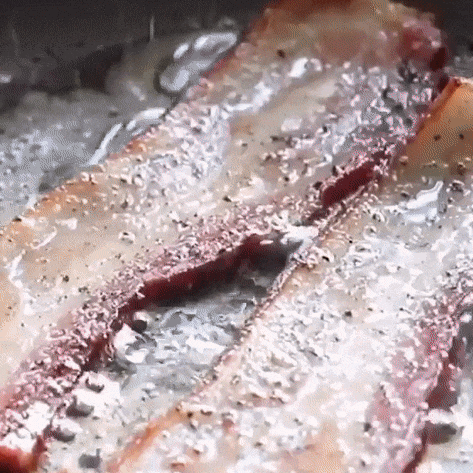
With rare exceptions, Christians do not consider the Old Testament's strict food laws as relevant for today's church; see also Biblical law in Christianity. Most Protestants have no set food laws, but there are minority exceptions
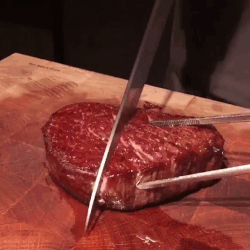
The Seventh-day Adventist Church (SDA) embraces numerous Old Testament rules and regulations such as tithing, Sabbath observance, and Jewish food laws. Therefore, they do not eat pork, shellfish, or other foods considered unclean under the Old Covenant. The "Fundamental Beliefs" of the SDA state that their members "are to adopt the most healthful diet possible and abstain from the unclean foods identified in the Scriptures".
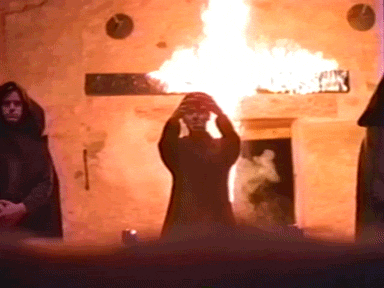
Proselytism
Judaism accepts converts, but has had no explicit missionaries since the end of the Second Temple era.
Judaism states that non-Jews can achieve righteousness by following Noahide Laws, a set of moral imperatives that, according to the Talmud, were given by God[k] as a binding set of laws for the "children of Noah"—that is, all of humanity. It is believed that as much as ten percent of the Roman Empire followed Judaism either as fully ritually obligated Jews or the simpler rituals required of non-Jewish members of that faith.
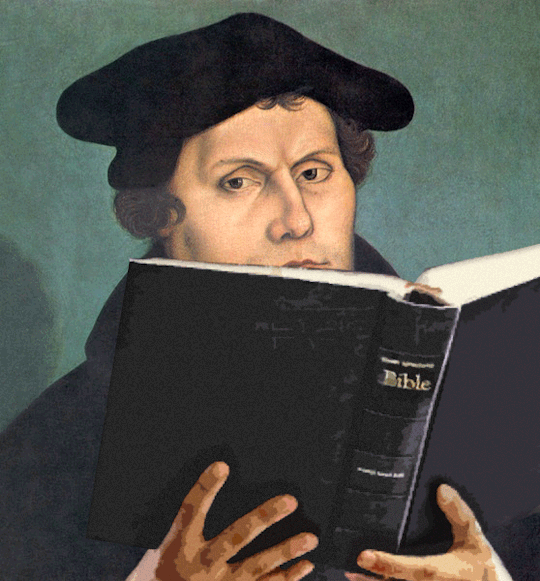
Christianity encourages evangelism. Many Christian organizations, especially Protestant churches, send missionaries to non-Christian communities throughout the world. See also Great Commission. Forced conversions to Catholicism have been alleged at various points throughout history. The most prominently cited allegations are the conversions of the pagans after Constantine; of Muslims, Jews and Eastern Orthodox during the Crusades; of Jews and Muslims during the time of the Spanish Inquisition, where they were offered the choice of exile, conversion or death; and of the Aztecs by Hernán Cortés. Forced conversions to Protestantism may have occurred as well, notably during the Reformation, especially in England and Ireland
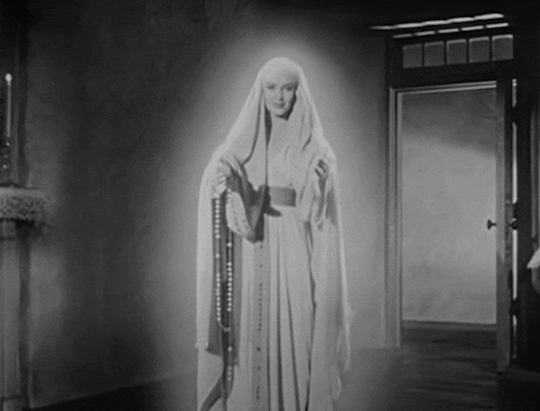
#kemetic dreams#islam#jews#judaism#talmud#christians#christmas#christianity#jesus christ#christian broadcasting network
42 notes
·
View notes
Text
my mama
is my god
i watch her eat this life’s emptiness, an almighty tithe
my god
lords over my hands, this sanctuary made in her likeness
and already yearning for gold
my god has tamed the edge of heaven
my god the gutter after a storm,
her rage broken
into my rib
— Aurielle Marie, from “transhistorical and i observe the Sabbath like a ill verse,” Gumbo Ya Ya
#quote#Aurielle Marie#poetry#Gumbo Ya Ya#out of my collection#transhistorical and i observe the Sabbath like a ill verse
226 notes
·
View notes
Text
Fic: Crazy Dreamer
Klaine Valentine’s Challenge 2023: “Us Someday" by Thomas Rhett (Day 12 prompt)
Words: ~2,800 words
Rating: Teen and Up
Summary: The aftermath of Kurt’s post-dinner-with-lesbians breakdown.
I’m back with more vignettes from my Mormon!Klaine universe for Klaine Valentines 2023! This vignette takes place after Enough.
My Mormon!Klaine Masterpost. (Klaine Valentines 2023 posts are bold and italicized.)
--------
Blaine got breakfast ready as Kurt finished up in the bathroom. Nothing fancy—muesli with milk and a side of microwave sausages—but the familiar motions of preparing food helped his thoughts settle in place after a restless night of only intermittent sleep.
He wasn't sure how Kurt had slept. Whenever Blaine had woken in the night and looked over at him, Kurt had lain still with his eyes closed. But for all Blaine knew, Kurt had faked sleep just to keep Blaine from worrying or trying to make things better.
Sometimes you just had to let yourself feel things, without fixing them.
Blaine hadn't always thought so. In his childhood, he had absorbed from his family and ward that Mormons should always radiate happiness. When his grandmother died, he'd been allowed to cry a little, but he wasn't supposed to express any more sadness than he would at a friend moving away to another town.
“You’ll see her again,” his mother told him. “And just think, now that she's on the other side of the veil, she doesn’t have to suffer with pain or sickness or any of the other struggles we have here on earth. It's hard to do at first, because of course you'll miss not seeing her so often, but we should be happy for her.”
His dad’s advice was more focused on doctrine. “You see, Blaine, death is a necessary part of the Plan of Salvation. This life we have on earth is meant to be temporary. And that's a wonderful thing, because that means we only have to be away from our Heavenly Father for a short time between our preexistence and our real life—our eternal life in the Celestial Kingdom. Death allows us to grow into our full potential.”
But recently, Blaine had started to learn the importance of sitting with things that made him uneasy. Just like the pain of a stubbed toe was a reminder to look where he was going, uncomfortable emotions were a signal to pay attention to his thoughts, his reactions, and his desires.
It had been hard to see Kurt struggling and have no way to fix it. His grief over Finn was still so raw—which made sense, given everything the church taught and the brevity between Finn’s death and Kurt leaving on his mission. But Kurt’s pain went deeper than grief. It stemmed from the quandary the church had put him in. It was impossible for Kurt to follow the church’s teachings, as he understood them, and also follow the promptings of the Spirit. The contradiction was tearing him in two.
Compared to Kurt, Blaine had it easy. Either because of his ignorance about himself or some other quirk of his upbringing, he had never internalized the condemnatory side of the church's teachings. God is love was the whole of his faith. Other teachings, like the Word of Wisdom or the law of tithing, had their place. They could teach people skills that helped them to love others, like self-discipline and self- sacrifice. But they weren't universal laws. If a person developed heat exhaustion and the only thing available to drink was iced tea, then they should drink the tea. If parents needed to choose between feeding their children and tithing, they should feed their children.
And it came to pass, that Jesus went through the corn fields on the sabbath day; and his disciples began, as they went, to pluck the ears of corn.
The Pharisees said unto him, Behold, why do they on the sabbath day that which is not lawful?
And he said unto them, The sabbath was made for man, and not man for the sabbath.
Wherever implementing the church’s teachings might distance someone from God's love, they needed to be set aside.
It wasn't like that for Kurt. In his heart, Kurt knew love was the ultimate law. Love one another—he’d said himself last night. But knowing something in your heart was different than knowing it with your whole being.
And that’s where Kurt got hurt. Love and orthodoxy and obedience tangled up in his mind, none taking precedence over the other. Kurt believed those three principles could always exist in harmony, in every situation, if only he figured out how to wedge them in place.
It was similar to what Blaine had seen in countless investigators. The Holy Ghost whispered the truth of the gospel to them, but they couldn't move forward. Their minds were cluttered with reasons not to accept the testimony of their hearts: they'd already been baptized in another church, or it seemed antisocial to forsake beer and coffee altogether, or they didn't want to hurt the feelings of family members by taking a different path.
Blaine never pushed these investigators. He accepted them as they were. The path they chose to take was between them and God.
He had to give Kurt the same grace.
Blaine had been pushing Kurt too hard, trying to speed them both toward the place Blaine longed for—a place where Kurt loved himself without exceptions and could decide, without guilt or shame, whether he wanted to extend that same love to Blaine.
It wasn’t fair to Kurt. Blaine had allowed his emotions to get the best of him, without thinking of Kurt’s.
Blaine needed to cool off. He needed to set aside what he wanted and focus on what Kurt needed: A friend. Someone who loved him without demanding he change. Someone who reminded him of God's love without forcing him to accept it.
*
“I did enjoy dinner with Liesl and Jana,” Kurt said, stirring his spoon in his muesli. “They’re good people. I'm sorry I lashed out at you. It wasn't right.”
“It's understandable, though,” Blaine said, resisting the urge to reach out and give Kurt’s shoulder a reassuring rub.
“It's just, all my life, whenever I’ve had a doubt or a question that couldn't be answered, I've followed the advice to set it aside on a mental shelf and not worry about it, because a deeper understanding would come eventually. And it was fine. I set aside all my questions about being gay and my mom being dead and my aunt being an alcoholic and why people in other churches seemed just as good and happy as us, and I figured, if I keep doing what the Lord asks of me, I'll get my answers. When I get my endowment, when I go on my mission, I'll get more clarity. But I swear, as much as I've had faith-affirming experiences on this mission, there have been even more I've had to put on the shelf. And I think, last night, it got too crowded. The shelf collapsed. All these things I've tried not to think about—they're all over my brain now. And I don't know how to shove them back. But I can’t deal with them, either. Because I still don't have answers.”
“You don't have to, Kurt.”
“Yes, I do. I'm a missionary. How can I teach people the Plan of Salvation if it’s stopped making sense to me?”
Blaine didn't have a ready answer for this question. He took a handful of raw muesli straight out of the box and chewed it until the rolled grains dissolved. The Plan of Salvation made sense to Blaine, but he realized now it was only because he had never understood it the way Kurt did. “You know, the way we teach it—I'm not sure I've ever taken it literally.”
“What do you mean?”
“Well, you know how we say the ordinances are necessary for salvation? I don't think I actually believe that.”
Kurt swallowed heavily. His eyes went wide. “But that's … that's like, the main thing we teach people.”
“I know. But I guess—I guess I've never really thought that it's actually the physical act of being baptized that washes away a person's sins, or the confirmatory prayer that gives them the gift of the Holy Ghost. It's more like, their willingness to do that—that's what saves people, not the form of the ritual or the specific words that get said.”
Kurt's eyes were no longer bugging out of his head, but he still looked doubtful.
“I'm not saying that baptism or confirmation or the endowment are useless,” Blaine said. “I think they facilitate a change in heart for a lot of people. And I guess that's what I'm teaching when we talk about the ordinances. That you can have a change in heart without the ordinances, but for certain people—for the investigators who respond to our message—going through the prescribed steps is a surer way of drawing closer to God.”
“Huh.” Kurt stirred his muesli thoughtfully, staring at the whirl of raisins and nuts and raw oats and barley as if they were the elements of the Milky Way, spinning through the vast unknown, and could lead him to Kolob if only he read them right. “You know, my mom believed something like that. She said the work we did in the temple was for ourselves more than for the people for whom we did the work. She thought God had created it as a way to show us that all people were deserving of heaven, not just those of us who belonged to the church.”
“Wow. She told little Kurt that?” Blaine was in awe. He couldn't imagine anyone in his family saying such a thing. He wished he could meet her.
“If she did, I don't remember it. But she wrote about it in a letter to my dad while she was on her mission. My dad gave it to me when I left for mine.”
“And what do you think of that idea?”
“I don't know. It sounds beautiful. But maybe it's too beautiful to be true. I'm pretty sure it's not what we're supposed to believe.”
A pang went through Blaine’s heart. “Beautiful things can be true, too.” Like the way I love you. But of course he wasn't going to say that. He was giving Kurt space to be.
Kurt smiled. A real smile, soft and affectionate; his eyelids squinting at the corners; the eyes themselves seeming to sparkle as they met Blaine’s gaze. For a moment, it almost seemed as if he knew what Blaine had wanted to say, and was glad for it. “You would say that,” Kurt said in teasing tone that seemed to say, You’re ridiculous, and that’s why I love you.
Blaine heart felt light. He shrugged—an invitation more than a dismissal. “Call me a crazy dreamer, then. But I’ll still dream away. Because believing that every human being who ever lived on earth needs a literal baptism, a literal confirmation, a literal washing and anointing, a literal endowment, and a literal temple sealing in order to return to our Heavenly Father doesn't make sense to me. I mean, sure, the ordinances we do by proxy cover some people who have passed on. But what about the very first humans, when there were no scribes to record their names? Or all the other people who’ve died without anyone writing down that they existed? Without those names, how can we do temple work for them?”
“You know what they say. It will all work out in the Millennium.”
“Is that what you believe?”
“I don’t know. I told you, everything is sliding around my brain like bits of broken glass. I don’t know what to believe about the Millennium, or about spirit prison and spirit paradise, or about the kingdoms of glory. The more I think about them, the more it all sounds like Joseph Smith really didn't know what he was talking about. I mean, I do believe he was a prophet. But that doesn't mean he understood things perfectly. He saw these little glimpses of truth and wrote them down. But he never claimed to tell us everything. He always talked about how there were things he saw that just couldn't be put into words. But we’ve taken those glimpses as the whole story. And we've had other prophets to fill in the details, but they haven't given us much. And a lot of it doesn't fit together with the other things we know.”
Kurt stared at the center of the table, chewing on his bottom lip. “You know how you’ve said that the kingdoms of glory are all in one place? That we won’t be separated from anyone we love after we die? Are you ever scared you’re wrong?”
Blaine shook his head. “I know it's not what we’re supposed to teach to investigators. That we’re supposed to tell them the only way for families to be eternally together is for everyone to go to the Celestial Kingdom. But that’s not what God revealed to Joseph Smith and Sidney Rigdon in Doctrine & Covenants 76—it says nothing about separating families. It says that residents of each kingdom minister to each other—which means it's not God's plan to separate us. I think we've come to interpret it that way just because it's so hard to visualize what Joseph Smith saw. But he himself said he was talking in metaphors. We think kingdoms have to be separate because that's what it's like on earth. Here, if you want to go to a different country, you need a treaty between nations that allows free movement, or you need a valid reason and a stamped passport. But it doesn't have to be that way in heaven. Like any metaphor, it works if you focus on the salient points. But you can't take it too far. Like, the comparison of the different kingdoms to celestial bodies is lovely. But if you think about it for just a minute, we know the Celestial Kingdom can’t literally be as bright as the sun, or no one would want to go there because they wouldn't be able to see anything in the presence of that much light.”
Kurt didn't respond immediately. He's eaten the rest of his muesli. There was only milk left in the bowl. He raised it to his mouth and drained it, then set it back on the table with a decisive click. “I do like your beliefs about heaven. They make sense. More sense than what I've internalized. And I want to believe what you believe. But I keep forgetting it's an option. How do you hold onto things you know are true when everyone else tells you you're wrong?”
Blaine felt a pleasant fluttering in his stomach. It wasn't pushing if Kurt asked. “I don’t, always. Sometimes it comes to me very, very slowly after a lot of denial. But I guess it comes back to listening to the Holy Ghost. Remembering the times I’ve felt his presence clearly, and holding onto that. And questioning, too. If there’s one thing that I know, growing up with a dad who was climbing in the church hierarchy, and a granddad who already had, and our family being friends with various apostles—I could see firsthand that they were just human. Most of the things the brethren say, when it’s not a direct quote from scripture, are conclusions they’ve drawn based upon their life experience. And a lot of those guys have had very limited life experience. They've grown up in these insulated, politically and socially conservative Mormon communities. And they think that because interpreting the gospel a certain way has worked for them, then it should work for everybody. And it does work for a lot of people—people who are just like them. I don’t want to call them arrogant. It’s more like … ignorance, I guess? They can’t see what they can’t see. Which is exactly why God has given us our own minds to think with, and the gift of personal revelation, so we can apply the gospel to our own lives, in situations the brethren don’t know how to imagine.”
Kurt stood up and rinsed his bowl in the sink. He took longer than usual, staring as the stream of water hit the ceramic and slid over its surface.
Eventually, he turned the faucet off. “Okay, then. A change of plans for companionship study today. You’re going to walk me through Doctrine & Covenants 76 and show me what you see.”
Blaine’s heart leapt. He couldn’t remember the last time Kurt had asked him to teach him anything about doctrine. This was big—not because he was turning to Blaine, but because he was willing to consider a more expansive understanding of God.
Blaine’s love for Kurt grew impossibly deeper.
#klainevalentines2023#mormon!klaine#wowbright writes fic#klaine fanfiction#klaine fic#not angsty#You call me a crazy dreamer But I’m gonna dream away#Our love would just grow deeper#If there’s one thing that I know
25 notes
·
View notes
Text
Introduction
Because I think it will provide some clarity, let's talk about a needed distinction for LDS folks when it comes to practicing a religion vs. being active in a religion.
I am a practicing Mormon. That is not the same thing as being active. I haven't been to Church in years because my local unit is not safe for me. So I do all of my personal worship in my home.
I pray. I study scripture. I rest on the Sabbath. I keep the Word of Wisdom, pay a full tithe, am honest in my dealings with my earth fellows, and still carry a current temple recommend. This is what I mean by believing and practicing.
The Book of Mormon teaches that my worship is no less valid because it takes place outside of a church building.
In fact, it puts into serious question why anyone would *need* a church building to worship.
The folks in Alma 32 were not required to subject themselves to abuses, dehumanization, and violence by being inside of the church buildings they built.
God came to them in their wilderness and blessed them as they were, with no mind to what they lacked.
I stand by that.
To the end of my days, I stand by that.
Why do I "bother" when so many people at church clearly don't want me around?
Because God does not belong to them to take from me. I refuse to give them that power because they don't deserve it.
You need a model for how to maintain your life of faith without being in contact with harmful people? Here it is.
You owe no one an explanation or justification for it. This is your life. It doesn't need to look like everyone else's to serve God and bring joy.
#mormon#mormon adjacent#progressive mormons#twitter migration#originally posted on twitter#mormonish
51 notes
·
View notes
Note
Did that anon really say it’s biblical to slaughter humans, leaving not women and children alive 💀 meanwhile the COMMANDMENTS BY GOD has us to not kill?? Clear as day for us to obey.
Sorry but this worship of violence christians have has to stop. It’s obvious how these people are blinded by Satans lies to justify their carnal desires. In the end times we are told that many lukewarm christians will be led astray by false prophets who are actual demons. Gun worship is demonic and gun culture is idolatry
Hm, to be honest, that's what one of the few things he got right actually 😅
The "Thou shall not kill" Old Testament commandment was for the Israelites treatments of each other (and yet, death penalty sanctioned by God for some sins, such as not respecting the Sabbath) but Israelites definitely had a God given license to kill (a good chunk of the OT are undless wars tbh). God occasionally told Israelites to even kill women and the child for when at war against specific countries, while for other He told to only kill (male) adults.
And yes, that's the same God we're worshipping today.
I think modern Christians have a very warped vision of who God is. Of course, Jesus happening revealed God Grace and Mercy - but God is also a God of Judgement and Punishment. Especially of His own people. For example I'm baffled that so many Christians seem to ignore that God sentenced to death Moses for disobeying/sinning, even after Moses repented(!!) 😭 But God judgement was done: Moses was sanctioned to never see the Promised Land and God ordered him to go up some mountain where he would die (actually almost all Hebrews died in the desert -minus Jacob and Caleb- because of of their disobedience) And it didn't stop at the OT : the God struck dead Ananias and Saphira (companions of Peter) for lying to the Holy Spirit 🥴 God doesn't play.
And that's also why all the people saying "once saved always saved" are liars because both Ananias & Saphira well saved and yet God still killed them for their sin¯\_(ツ)_/¯
God hates sin as much as He did back then. So much that people caught disrespecting them was worth death. That's why Jesus got crucified btw. Blood had to be spilled to repay the blood we owed to God for sinning. That's why we owe so much for Jesus who literally sacrificed himself for us to not bear the fate we actually deserved for our sin (eternal death in hell).
But where this user got everything wrong is that you can't feel entitled to Israelites prerogative (using violence) while feeling entitled to CHRISTIAN mercy. WE ARE NOT THE ISRAELITES. God deported the Jews. The Temple got destroyed. Jesus fulfilled the Law. We don't have a land to defend because huh Christians are dispatched across the whole world on different countries, speaking different languages, different political regime (that's why US Americans invoking politics/Constitution/ civil law in their BIBLICAL defense of gun carrying are very stupid - like...it's scary how stupid they are to think such things are remotely relevant to other Christians anywhere else in the world), etc. So WHY cherry picking one Israelite prescription? Remember, disobeying 1 commandment of the law is like disobeying the WHOLE Law.
So yeah, if those gun toting Israelite LARPers want to access the prerogatives of Israelites, they better obey to the same commandments: do the Sabbath (no light, can't get past a given distance from their home), stone adulterers, circumcise their son, not eating pork, pay the tithe....and all the other 600+ commandments of the Law. Oh and they also better keep Jesus out of their mouth since Jesus fulfilled the Law and there's no point to invoke Jesus while still entertaining the very same things He precisely came to put an end to🙃
They can't pick and chose what they want from the Law while leaving out the rest. That's how you know how wack the theology of those people are. And it's tragic how many people get fooled by this. false doctrine. Interestingly enough, they will never answer to this question:
if Jesus refused to defend himself/use violence out of obedience to the Father, what makes you think you can? Where does the entitlement of disobey a commandment that Jesus himself followed come from??
If you're interested I made a very throughout debunking of the pro gun Christian stance on my Christian side blog
3 notes
·
View notes
Text
According to Ephesians 2:15, Christ “destroyed the Law of commandments by decrees. ” This passage, attested in the Apostolikon, provided Marcionite Christians with perhaps the clearest statement about Christ’s destruction of the creator’s Law. Marcionites were not distinct from many other Christian groups in their (selective) rejection of Mosaic regulations, but they were different in their view that Christ came to destroy the Law. Christ came to destroy the Law, in their view, since it was hostile and wicked insofar as it enslaved humanity. The Law was so destructive, indeed, that Christ had to redeem humanity from its curse. The wickedness of the Law in terms of both content and effect implied, for Marcion(ites), the malign nature of the one who gave it, namely, the creator.
[...]
According to early Christians, Jesus had several run-ins with the Law. Indeed, Christ’s conflicts with the Law were a theme in the gospels— including those that became canonical. When speaking to the fictional Jews in John, Jesus twice referred to the Law as “your Law” (8:17; 10:34; cf. 15:25; 18:31), insinuating that it was not his own. Early Christians believed that Christ “taught against the observances of the Law,” with regard to foods and Sabbath observance especially. “And any observant person,” one preacher observed, “will find many other teachings of the same sort.”
Marcionite Christians were especially observant in this regard. They noticed that at some points, Christ seemed deliberately to disobey the Law, even rubbing it in the face of Jewish leaders. These leaders regularly pointed out that Jesus failed to obey Mosaic regulations regarding the Sabbath, cleansing before meals, touching impure people, tithing, and so on. Of course, the historical Jesus was Jewish. But for many early Christians, the Jewish identity of Jesus was not a historical fact in need of recovery. It paled in significance to Jesus’s divine identity as son of god and savior. Therefore we cannot assume that merely because Jesus was born Jewish, early Christians understood him to be subject to Jewish Law.
Consider: the Jesus of the canonical gospels is never once portrayed as performing a sacrifice according to Jewish Law. Jewish males were required to appear in festivals at Jerusalem three times a year (Exod 23:14– 17; Deut 16:16). The Jesus of the Synoptic gospels never shows independent concern for these holidays. He once desired to eat the Passover meal (Luke 22:15) but in the course of it dramatically changed its meaning. In John, Jesus gave the impression that he would deliberately not travel to attend a festival in Jerusalem (7:8). The Jesus of the gospels, finally, was never said to rest on the Sabbath and never encouraged anyone else to do so.
[...]
Tertullian was willing to admit that Jesus destroyed “Judaism,” thereby provoking the Jews to kill him by their law (suo iure). A later church father wrote that according to Marcion, Jesus “was found worthy of death many times over by those laws” since he was curtailing and obstructing Jewish Law. The Law commanded that “Every Jew who breaks the Law” be killed— in particular Sabbath breakers. Thus by the Law, Jesus was “worthy of death.” But if the Law of the creator could kill the innocent Christ, could the Law be good? And if it was not good, how could its creator be good?
In Galatians 3:13, Paul spoke of the “curse of the Law.” Yet the Law was given by the Jewish deity, as Paul knew. Paul’s comments about the Torah thus raise the question, “if the Law itself brings a curse, what does this say about the Lawgiver?” To adapt the question of the Testimony of Truth: “What kind of god is this?”
-- M. David Litwa, The Evil Creator: Origins of an Early Christian Idea
13 notes
·
View notes
Note
Praise God. Jesus, who reigns, my Husband and Son of God, comes soon. USA(Babylon) will be invaded by Russia to the east and China to the west and will lose. NYC will be destroyed. Repent and focus on Jesus. Plead the blood of Jesus. Rapture is soon and the kingdom of God is near, so be holy. Obama is the antichrist and will use the rfid chip as mark of the beast with the False Prophet named Francis from Catholicism. There will be three days of darkness so please prepare as that will be when Jesus shall visit people. There will be fallen angels and giants and zombies and cyborgs and dinosaurs and persecution and many millions of deaths and disease like boils and tsunami to USA California and New Jersey and Florida and famine and fireball. Canada and Europe and South America and asia shall also be affected with judgements. Time is short and Jesus is coming to collect a people without spot or blemish. The tribulation will be bad so enter rapture to escape. EMP coming to USA.All lives matter not just black lives. If you suffer from depression, anxiety, racing thoughts, mood swings, anorexia, suicide thoughts, loneliness, or have a disease, seek Jesus. Jesus can cure any disease. Husbands are head of the wives, husbands love wives and wives obey husband. Aliens are demons dont trust them. Believe in faith to receive in prayer or you will not receive, those who exalt themselves shall be humbled but those who humble themselves shall be exalted, seek Jesus and pray without ceasing, Keep 10 commandments even Sabbath, bless and not curse, do unto others what you would want them to do unto you, harp music with praises to Jesus is biblical, read bible daily, cleanliness, no yoga or yoga pants, dont get COVID vaccine, love God, love others, avoid homosexuality, witchcraft, sinful media like tv shows, unholy anime, love of money, sex outside of biblical marriage, adultery, masturbation, porno/hentai, anal and oral sex, drunkenness, pride, smoking, gossip, lying,lacking faith, materialism, fictional books, dolls like dolls from Disney, no disney shows or movies, sinful movies like marvel, joking around, not loving God, unforgiveness, rap/music that doesn't glorify Jesus or God, cursing, hate, suicide, videos games, trusting in self or humans over trusting in God and His Word, having any idol than Jesus, bikini and inappropriate clothing, sex with animals, arrogance, rebellion, Santa Claus, catholicism, 7th day adventist, lukewarmness, martial arts, freemasonry, energy drinks, skirts/dresses above the knee, tattoos, dying hair, star wars and the figures and movies and games, idolising sports, smoking cigarettes or marijuana or e cig, supporting or being a furry, orgies, swallowing semen, hating God, dora the explora, cheating on your spouse with another person, bad thoughts like sexual thoughts and murdering thoughts, condoms, black goo, being rich in this life, loving this life, seeking popularity/ having favortism/partiality,sex, racism, jehovah witness, mormonism, transgender, lies of evolution and big bang, flat earth, gambling, cheating or not paying on taxes when biblical required, drinking human or animal blood, twilight book series, not helping the poor and needy and widows, not giving tithe (10% of income) and offerings, not being thankful to Jesus, not listening to parents, Halloween, 5g, avoid following other religion other than following Jesus Son of God. I am an unprofitable servant and least of everything by infinity. Best blessings to everyone every second forever by infinity God willing. Shalom aleichem.
Anyway what did you think of she hulk
10 notes
·
View notes
Text
The Destruction of Idols
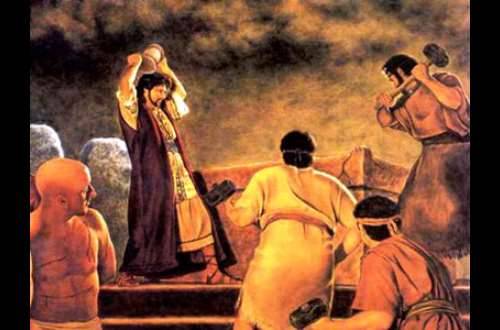
When all this had ended, the Israelites in attendance went out to the cities of Judah and broke up the sacred pillars, chopped down the Asherah poles, and tore down the high places and altars throughout Judah and Benjamin, as well as in Ephraim and Manasseh, until they had utterly destroyed them all. Then all the Israelites returned to their cities, each to his own property.
Hezekiah reestablished the divisions of the priests and Levites—each of them according to their duties as priests or Levites—for the burnt offerings and peace offerings, for ministry, for giving thanks, and for singing praises at the gates of the LORD’s dwelling.
The king contributed from his own possessions for the regular morning and evening burnt offerings and for the burnt offerings on the Sabbaths, New Moons, and appointed feasts, as written in the Law of the LORD. Moreover, he commanded the people living in Jerusalem to make a contribution for the priests and Levites so that they could devote themselves to the Law of the LORD.
As soon as the order went out, the Israelites generously provided the firstfruits of the grain, new wine, oil, and honey, and of all the produce of the field, and they brought in an abundance—a tithe of everything. And the Israelites and Judahites who lived in the cities of Judah also brought a tithe of their herds and flocks and a tithe of the holy things consecrated to the LORD their God, and they laid them in large heaps.
In the third month they began building up the heaps, and they finished in the seventh month. When Hezekiah and his officials came and viewed the heaps, they blessed the LORD and His people Israel.
Then Hezekiah questioned the priests and Levites about the heaps, and Azariah, the chief priest of the household of Zadok, answered him, “Since the people began to bring their contributions into the house of the LORD, we have had enough to eat and there is plenty left over, because the LORD has blessed His people; this great abundance is what is left over.”
Then Hezekiah commanded them to prepare storerooms in the house of the LORD, and they did so. And they faithfully brought in the contributions, tithes, and dedicated gifts. Conaniah the Levite was the officer in charge of them, and his brother Shimei was second. Jehiel, Azaziah, Nahath, Asahel, Jerimoth, Jozabad, Eliel, Ismachiah, Mahath, and Benaiah were overseers under the authority of Conaniah and his brother Shimei, by appointment of King Hezekiah and of Azariah the chief official of the house of God.
Kore son of Imnah the Levite, the keeper of the East Gate, was in charge of the freewill offerings given to God, distributing the contributions to the LORD and the consecrated gifts. Under his authority, Eden, Miniamin, Jeshua, Shemaiah, Amariah, and Shecaniah faithfully distributed portions to their fellow priests in their cities, according to their divisions, old and young alike.
In addition, they distributed portions to the males registered by genealogy who were three years of age or older—to all who would enter the house of the LORD for their daily duties for service in the responsibilities of their divisions— and to the priests enrolled according to their families in the genealogy, as well as to the Levites twenty years of age or older, according to their duties and divisions. The genealogy included all the little ones, wives, sons, and daughters in the whole assembly. For they had faithfully consecrated themselves as holy.
As for the priests, the descendants of Aaron, who lived on the farmlands around each of their cities or in any other city, men were designated by name to distribute a portion to every male among the priests and to every Levite listed by the genealogies.
So this is what Hezekiah did throughout Judah. He did what was good and upright and true before the LORD his God. He was diligent in every work that he began in the service of the house of God, and in the law and the commandments, in order to seek his God. And so he prospered.
— 2 Chronicles 31 | The Reader's Bible (BRB)
The Reader’s Bible © 2020 by Bible Hub and Berean.Bible. All rights Reserved.
Cross References: Genesis 46:17; Exodus 34:13; Exodus 36:5; Leviticus 25:34; Numbers 35:2; Deuteronomy 33:29; Joshua 21:9; 1 Kings 6:5; 2 Kings 18:3; 1 Chronicles 6:8-9; 1 Chronicles 9:22; 1 Chronicles 23:3; 1 Chronicles 23:24; 2 Chronicles 29:12; 2 Chronicles 35:9; Proverbs 3:10; Luke 1:8; Romans 8:23; Colossians 2:16; Hebrews 7:5
#idols destroyed#contributions for worship#Hezekiah organizes the priests#2 Chronicles 31#Book of Second Chronicles#Old Testament#BRB#The Reader's Bible#Bible Hub#Berean Reader's Bible
13 notes
·
View notes
Text
What Can Unjustify You as a Believer?
Eating pork, shrimps, or other unclean meats can’t do it, neither skipping Sabbath observance, which was never for Gentiles anyway, nor feeling accursed for not paying ‘tithes’ . But, if you as a believer insist on observing or keeping the law – this verse fits you well:
Galatians 5:4 King James Bible Christ is become of no effect unto you, whosoever of you are justified by the law; ye are…
View On WordPress
0 notes
Text
I've started snacking on bread it's the best. No thank you weird tasting processed food, I'm but a lowly French peasent girl feasting on her loaf of rye. My biggest worry is when the tithes will be collected. I farm turnips for a living, like my mother and her grandmother before her. I will take the sheep to market in Êleon with father after the sabbath has passed. I will die of an early curable disease at 23. Life is good.
3 notes
·
View notes